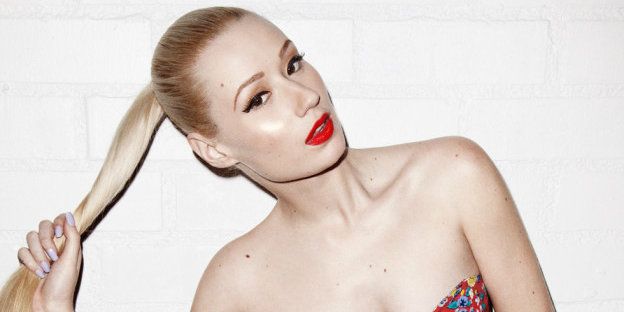On Iggy and Ego: Acknowledging Privileged Thinking

by Daria-Ann Martineau
If Iggy isn’t racist or homophobic, the evidence Piggy Azalea has collected against her doesn’t look good. However, what irks me more than Iggy’s comments (or blatant Black appropriation) is her belief that she has no reason to apologize, that those who take offense are “immature” (as if “Indian chief” jokes are the peak of sophisticated humor). As with many other stars, Iggy’s fans go quickly to the “She’s not racist, she has a black (boy) friend” defense. (By the way, being attracted to someone does not mean you regard him as an equal.) If Iggy is not prejudiced, she should know one doesn’t have to be prejudiced to say something prejudiced. That prejudice includes racism, homophobia, sexism, etc. and you are not exempt from saying offensive things because someone you love happens to fall into those “othered” categories.
It took me years to understand this. I first learnt the term “gay” at eight years old. It was on the cover of a Catholic News in my house. The headline read, “POPE: GAYS NEED LOVE TOO” and I asked my mother what it meant. She explained simply, “Sometimes instead of a man falling in love with a woman, he falls in love with another man or a woman falls in love with a woman.” The key word I extracted here was “love.” I was old enough to understand that you can’t help whom you love. I was also young enough that I said, “if it’s okay with the Pope, it’s cool with me.” (Thankfully I grew up under John Paul II). I always considered myself pro-gay rights but I still had homophobic preconceptions. In high school I often said—to my one openly gay friend’s dismay— “that’s so gay,” meaning, “that’s so dysfunctional.” When he expressed hurt, I simply said “You know I don’t mean it like that.” I was willfully ignoring reality: I was perpetuating an idea that gay was dysfunctional. I was raised Catholic in the Caribbean which still holds many homophobic attitudes that I did not recognize at the time. I’ve grown up since then and can only continue to evolve as the LGBTQ community and society as a whole do. I was ignorant. Not malicious.
Generally when someone’s feelings don’t align with our own, it is because that person’s experiences do not. Do I think Julianne Hough is racist for dressing up as her favourite OITNB character? No. Is what she did hurtful and problematic? Most definitely: it shows a fundamental lack of understanding of the painful history blackface symbolizes. Before the backlash, she had probably known a little about blackface but never had to learn its agonizing history in depth (very few people are willing to teach it, as we recently saw) She probably had never seen an actual minstrel show, read an essay on the subject or watched Spike Lee’s Bamboozled. She likely did not see her makeup as a problem because it was not a problem to her. She hadn’t realized (and I stress I am projecting here) that dressing as a Black person was one of the many brutal psychological ways that Whites dehumanized African- Americans. She meant, I believe, to celebrate a fictional character. However, in doing so she forgot to recognize the humanity in other real African-Americans by seeing something from their perspective. She wore something that, much like a Confederate flag or a swastika, represents hatred and disdain for a group of people. She used a racist symbol. She is not necessarily racist.
What is important when we do things like this is, that we acknowledge the hurt and educate ourselves as to why our behavior is not acceptable. Privilege may get in the way of our understanding. Egos should not. At some point, we are all ignorant about another culture. The important thing is that we are willing to learn.

No comments: